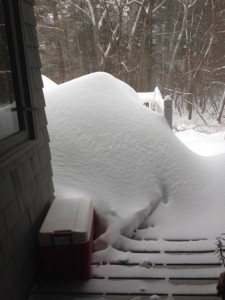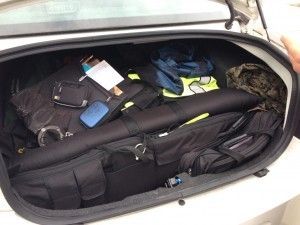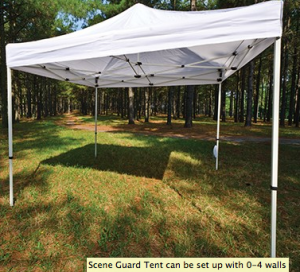So You Think You Want to Be a Crime Writer?
Warning: This is a blog about process. If a writer’s process bores you, go bake brownies or something.

My back deck, mid storm on Monday
Kate Flora here, watching the snow come down, trying to remind myself that winter is a great season for writing. Not that I don’t know that. I’m at my desk every day. And yesterday, after putting it off for a month, I finally started working on my new Joe Burgess mystery, Who Leads the World Astray. As you know, there’s always a lot of talk in the writing world about whether a writer is an outliner who carefully plots out the entire book beforehand, or whether a writer is a “pantser” or one who plots by the seat of her pants, following the story as it emerges from her fingers or her pen.
I am neither. I’ve decided to call myself a cooker. By this I mean that I cook a plot for several months inside my head before the first word ever lands on paper or my screen. It means that I go bumbling around, mulling the plot over and wondering about various aspects of the story for a long time before I start the actual writing. I’ve joked with bookstore and library audiences about this period, in which I think I should have a label affixed which, in the way of Paddington Bear, urges people: Please Look After This Writer. Thank You. If Found, Please Return To…etc. It isn’t entirely a joke, because what will happen is that I’ll be going along, running an errand or shopping for groceries, and suddenly another part of the plot will become clear and I’ll be stuck there, staring at the frozen peas, while I’m walking Burgess through some event in the story.
In general, at some level of detail, I will know what the crime scene looks like, who the victim or victims are, who did it, why they did it, and who my other suspects will be. The rest, like the pantsers, I discover along the way.
Which brings me to yesterday and the opening chapter of the book. Years ago, when I first started

Officer Wes Mecham’s car trunk.
writing mysteries, I cherished the misguided notion that what a writer did was sit at her desk and make things up. It’s true. That’s what we do. But when we’re writing in the crime arena, there’s a whole lot we can’t make up. And that is particularly true in the realm of the police procedural. There has been a Bob Seger song running through my head today. The song is Against the Wind, and the particular line from the song goes like this: “Wish I didn’t know now what I didn’t know then.” http://yhoo.it/1DTY52t
Before I spent all these hours reading criminalistics textbooks, Practical Homicide Investigation, forensic entomology, and attending the Writers’ Police Academy http://www.writerspoliceacademy.com , I was comfortable with my imagination. Now I have a question at almost every step. I’ve very envious of my friends Brian Thiem and Bruce Coffin, who are retired police detectives, because when they write about this stuff, they’ve been there and done it. I have to ask a thousand questions, and then imagine it for my characters.

Mock accident scene, Writers’ Police Academy
So, here’s what happened yesterday. I planned that Burgess would be driving back from South Portland where he’d gone to interview a witness, and on the way he got a call asking him to check on two officers who’d gone to answer a shots fired call and weren’t answering their phones or responding to their radios. Burgess was looking at the sky and thinking that it was about to rain. And a little voice in my head said: Never open a book with the weather. Elmore Leonard’s rules for writing: http://nyti.ms/1g4zRt3
I revised my opening so that he’s thinking about the little snot he’s just interviewed, who’s the witness in an assault but now “doesn’t want to be involved.” It gives me a chance to show Burgess’s attitude, his compassion for victims, his disdain for people who won’t step up. And then I get to talk about the clouds as he arrives at the scene and starts down an overgrown road into the woods.
But it’s winter and I’m sitting at my desk, and have I really chosen the right place to set this scene? So

Blood spatter analysis. Arterial spray.
I call up my map of Portland and check out the satellite images and make sure I’ve identified the right roads leading to that location, and now I’m back to work. I skip trying to identify what trees are growing along the road, something the brilliant Gerry Boyle would know at once, and I can answer later. Get on with it already, I remind myself. Nothing has happened yet. Why will the reader care? But then, just around a bend in the road, there’s a body. A uniformed body. Lying in the road.
Okay. So now I face the challenge of leading my detective through the opening crime scene and the dual challenge of a police detective coming upon a fellow officer who has been shot, which is an emotional firestorm. He has to examine the body. Determine that the officer—a rookie, a kid with his whole life ahead of him, newly married, hopeful, coming into this career to do good—is dead. Simultaneous dealing the fact of this death, and all that means for the thin blue line, and taking mental notes about the crime scene, making the calls to bring a crime scene team in ASAP, and realizing that that previously interesting gray sky is now starting to spit rain, which will disperse the blood spatter patterns on the dirt and may destroy footprints or other significant evidence. I quickly hope back onto the internet to look at blood spatter patterns from an arterial spray. http://science.howstuffworks.com/bloo...

If it’s going to rain, we’ll need a tent to protect the scene.
And that’s not all. It looks like a rifle shot. Maybe a sniper? Is the shooter still out there, and Burgess a sitting duck? And there is still the second officer to account for. Will he be shot, too? And what on earth is this about?
Dear readers, I am only five pages into this book. The first 1000 words out of 80,000. A decade ago, maybe I could have made it all up. Now? I will limp along, sending frantic memos out to cops, doing research, and settling back into the amazing part—rejoining characters I’ve come to care deeply about. The adventure begins.
Lea Wait's Blog
- Lea Wait's profile
- 509 followers



